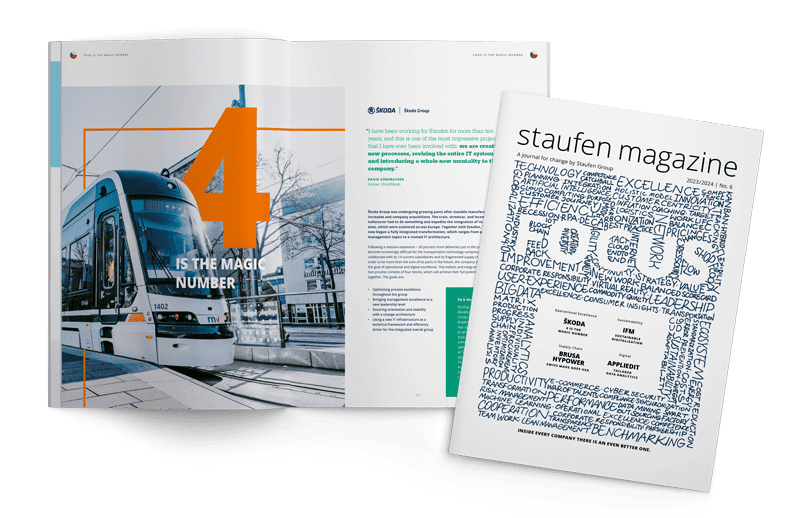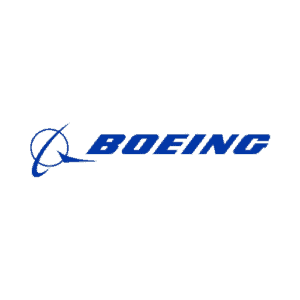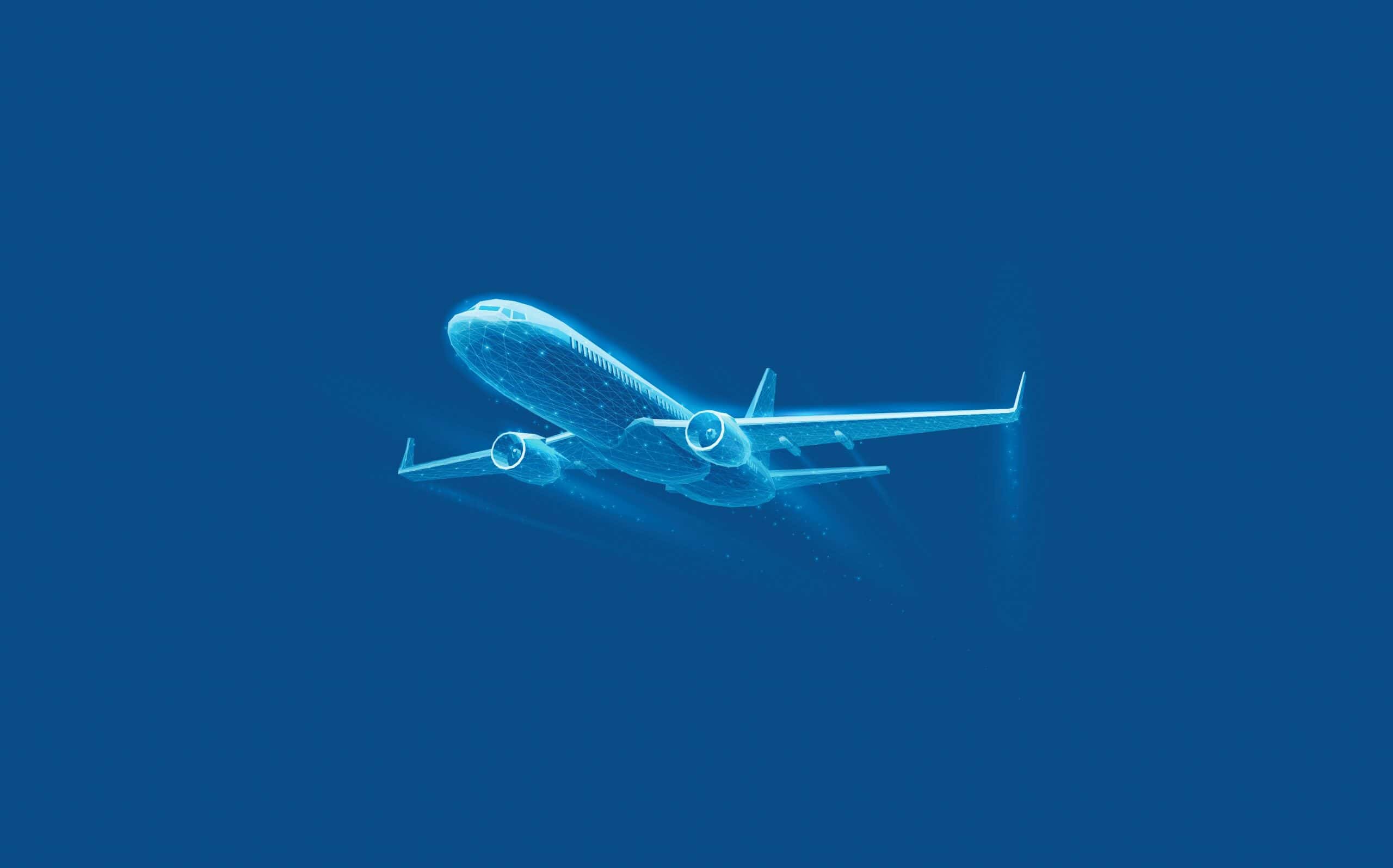
“It’s all about safety”
The aerospace group Boeing develops electronic products and services in a former printing shop in Neu-Isenburg, Germany. There, just a few kilometers from Frankfurt Airport, Dr.-Ing. Jens Schiefele heads the German innovation center of the US company. In an interview, he describes how the area has digitally transformed over the past 25 years.
In an interview with Prof. Dr.-Ing. Jens Schiefele, Director Digital Aviation Research & Rapid Development/Managing Director at Jeppesen GmbH.
Mr. Schiefele, there is a statue of Captain Elrey B. Jeppesen in front of the hall – what connects Jeppesen with Boeing?
Schiefele: It all started with Captain Jeppesen: He had been developing instrument flight charts since the 1930s so that pilots and passengers could reach their destinations safely. In 1957, he opened the first office in Germany. At that time, the cards were still printed, in the hall that now houses the Digital Innovation Lab. Since the late 1950s, the Jeppesen company in Germany has been continuously expanded and has been a Boeing subsidiary since 2000.
But digital maps aren’t the only products that are being developed in Frankfurt?
Schiefele: No, the Boeing Digital Solutions division in Germany has already developed products such as the electronic pilot case or the Airport Moving Map cockpit assistance system. Today, we develop analytics software to optimize airline operations. Our goal is to support customers with efficient services in digitization and networking.

Prof. Dr.-Ing Jens Schiefele
Director Digital Aviation Research & Rapid Development/Managing Director
Jeppesen GmbH

Prof. Dr.-Ing Jens Schiefele
Director Digital Aviation Research & Rapid Development/Managing DirectorJeppesen GmbH Read more
The Frankfurt site of Boeing has also changed massively as a result of digitization, even if the printing hall is still standing. You’ve been there from the start: When did the transformation begin?
Schiefele: It already started around 25 years ago. At that time, the CEO recognized that the future was digital and no longer paper. We then set up a software department and started digitizing the maps. But initially, only a few airlines jumped on the bandwagon. But the CEO was undeterred and consistently pursued the digitization strategy.
Then, in 2010, the first iPad came, and the market literally exploded. After two to three years, 70 percent of the airlines had started to switch to our digital products. Today there are only digital maps. In this way, we save some weight on board and allow crews to quickly access a large number of digitized flight charts. In the meantime, the transformation has extended to the Boeing Digital Solutions Board: Today we have the first CEO and an entire leadership team with a “digital” background.
How does digitization affect the organization and culture in the company?
Schiefele: Traditional production used to be process-related and clearly defined. There was no deviation from the process to ensure quality. There are still areas that have to work this way. But especially here in the Innovation Lab, the focus is on creativity and speed. The engineers maintain an open, integrative culture with flat hierarchies. Mistakes are allowed and will be corrected. They work in so-called self-managed teams. Each team is put together by the employees themselves and decides how it works. Our culture of openness is also reflected in the hall, and the participants in the Staufen BestPractice Tour were already able to get an idea of this: openness, transparency, and flat hierarchies are extremely important to us. But despite this typical “start-up culture”, we attach great importance to the quality of our digital products. After all, our industry is all about safety.
What’s next at the Boeing site in Frankfurt?
Schiefele: Digitization and networking in aviation are progressing. One of the things we are currently working on is smart cabins where, for example, food can be ordered by cell phone. Also air taxis, which transport passengers in cities or to airports, and aircrafts with reduced crews are topics. As a part of Boeing, we have the opportunity to do things that we couldn’t have done as Jeppesen.
The company
Jeppesen was founded in 1934 as one of the first companies to offer navigational charts for pilots. Today, the company is a subsidiary of Boeing. Around 470 people are employed at Jeppesen’s German site in Neu-Isenburg. Jeppesen supports airlines around the world in reaching their destinations safely and efficiently. Based on this experience, Jeppesen today offers an ever-growing range of innovative digital solutions, information products, services and software solutions.
1934
founded
470
employees in Neu-Isenburg
Request the Magazine now as a digital or print version

You might also be interested in

Consistent evolution finances a digital future
Examples such as the recent AI chatbot ChatGPT quickly give the impression that the digital transformation is taking place in disruptive spurts, indeed must take place. However, a look into the industrial heart chambers shows that the digital pioneers rely on continuity. An interview with Oliver Erb, Senior Vice President at CELONIS.
Read more
Unleashing Operational Performance through Tailored Data Analytics
Company data is still the most underused asset. In the labyrinth of industry operations, where data flows are as complex as they are copious, AppliediT stands out, a Spain based technological beacon illuminating the path to improved operational performance by using tailored data analytics solutions and data engineering services.
Read more
Digitalizzazione/Industria 4.0
Intelligent Industry 4.0 production processes can be applied to accomplish a variety of objectives. These include achieving greater productivity and efficiency, fulfilling consumer specifications faster and more expediently, and developing brand-new industrial products and business models. Small and mid-sized companies often have a particular need for this kind of consulting and guidance.
Read more

